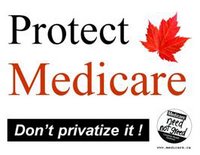Remarks at People’s State of the State RallyJanuary 3, 2006
Paul Sorum, PhD, MD
As you all well know, as Governor Pataki and our legislators well know, New Yorkers face a growing crisis in health care:
• Health insurance premiums are inexorably rising.
• Businesses, small and large, are struggling under—and are increasingly shedding—the burden of providing health insurance for present and past employees.
• County property tax payers in New York are footing the bill for the ever-rising costs of Medicaid, not because Medicaid patients use more health care—they don’t—but because their care is singled out and its costs passed on to the counties.
• Health providers and patients are drowning in the flood of red tape and regulations issued by the multiplicity of insurers.
• Physicians are plagued by often frivolous malpractice charges and rising malpractice insurance costs.
• And an increasing number of New Yorkers have no or inadequate health insurance.
It is time for Governor Pataki and the legislature to listen to the pleas for help coming from all sides.
It is time for them to make high quality and affordable health care services available to all New York residents.
What in particular should they do?
• First, they should establish a Legislative Commission--as proposed by Assemblyman Richard Gottfried, the chair of the Assembly Health Committee--to study in depth the financial and social implications of the various ways to achieve universal access to health care.
• Second, they should realize that the only way to provide universal coverage in a simple, efficient, and cost-effective manner is to institute in New York State an expanded and comprehensive system of Medicare for All (such as the plan introduced in the Assembly by Assemblyman Gottfried).
Medicare for All would change the financing of medical care (via a single administrative board), not the delivery of it:
• All residents would have access to comprehensive care.
• Providing & receiving care would be simple. All patients would have the same card: Governor Pataki, the legislators, you and me, a homeless person—the same card. It would be accepted by all providers. There would be only 1 set of rules, 1 drug formulary, 1 set of quality improvement measures. Simple and fair.
• You could go to the physician and hospital of your choice. Competition among providers would occur on the basis of quality, not on the basis of price or special deals with insurers.
• Care would be less expensive financially and emotionally. Physicians could take care of patients, not the insurance companies. The armies of people working in the offices of health care providers and of insurers could be put to better uses. And the central board could negotiate lower prices with pharmaceutical companies.
• The Medicaid problem would be gone: again, everyone would have the same card.
• The malpractice threat would be alleviated. The system could set up a no-fault mechanism for compensating patients who have adverse outcomes; and they would have no need to sue to provide for future health care costs.
• Large and small businesses would be out of business of health care.
So, if we had an expanded Medicare for All, patients and physicians, employers and employees, big and small businesses, county administrators and country property tax payers, rich and poor—all would rejoice.
We appeal, therefore, to Governor Pataki and our state legislators to make fundamental health reform a priority in 2006 and to institute an expanded Medicare for All for the citizens of New York.
Read in full

